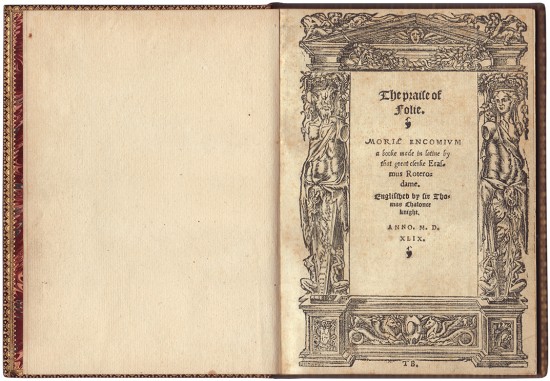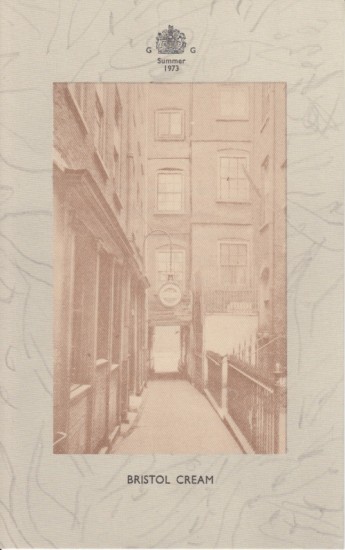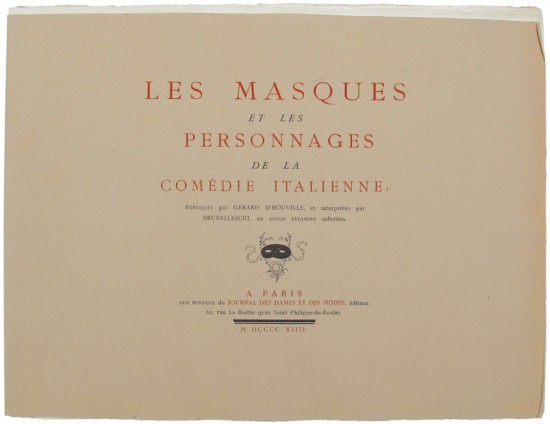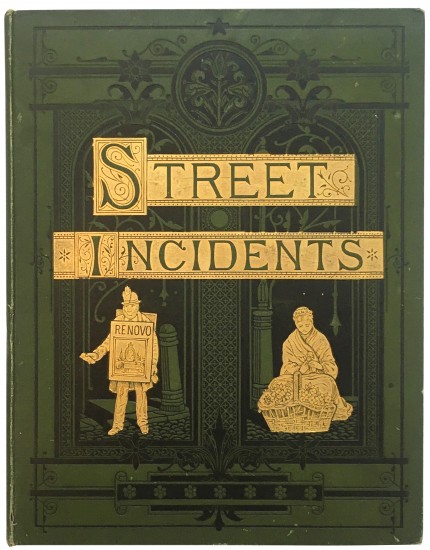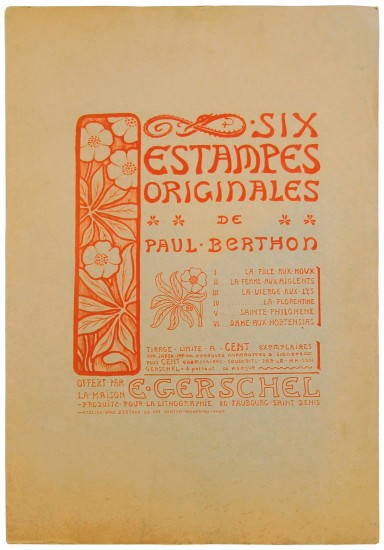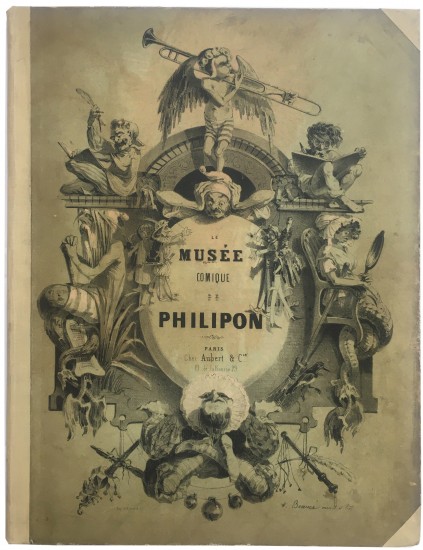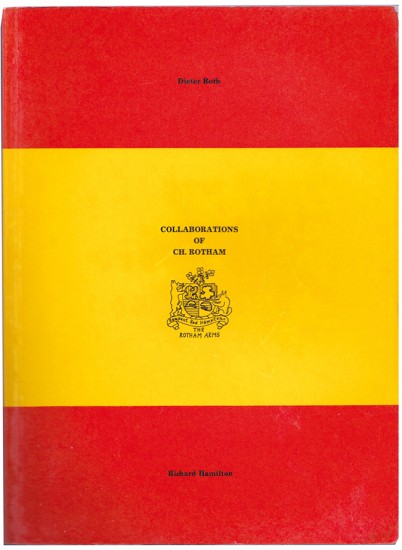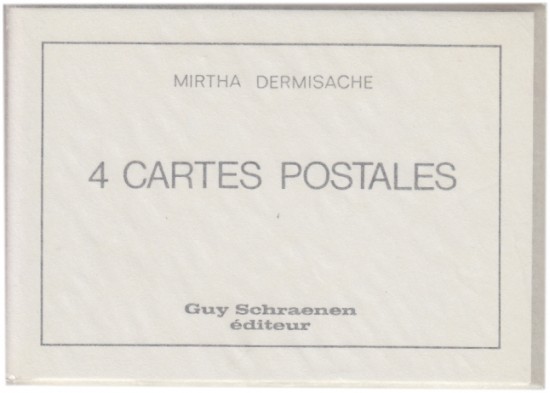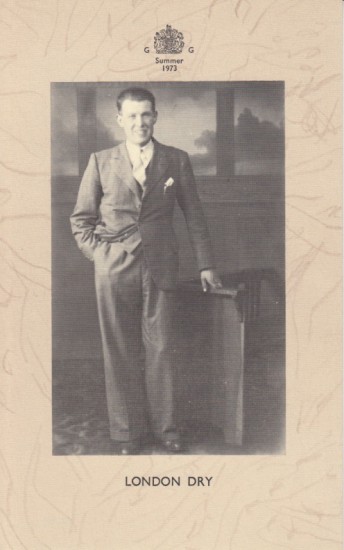The Praise of Folie. Moriae Encomium. A Booke Made in Latine by That Greate Clerke Erasmus Roterodame. Englished by Sir Thomas Chaloner Knight
Erasmus, Desiderius
(London). T[homas]. B[erthelet]. 1549
Sold
A complete copy of the first edition in English of Erasmus' prose satire, Moriae Encomium: The Praise of Folie.
Desiderius Erasmus (1466? - 1536) composed the Latin text of his 'Moriae Encomium' (note the punning title in Greek: Μωρίας Εγκώμιον), that 'brilliant and biting satire' (PMM), while staying at the Old Barge, the house of his close friend, Sir Thomas More, during the winter of 1509 - 1510; it is likely that the satire arose out of the Lucianic discussions for their joint translation that led also to the publication of More's 'Utopia'. Erasmus' narrator is the female morosoph 'Folie' ('Stultitia' in the original Latin) who expounds her subversive view in a tone of 'serio ludere' that it is folly that drives the world and the affairs of men and that none, from those that rank the highest in society to the lowest, are free from her influence. Taking his tone from the works of Rabelais, Guyot Marchand and Sebastian Brant, Erasmus and his narrator present a society where those that think themselves the least foolish - and Erasmus includes himself in his text - are proven by 'Folie' to be the most deluded and the most under her considerable influence.
First published in Paris in 1511, the Moriae Encomium was reprinted in a large number of editions - several years featured two and even three or more - in its original form before any vernacular translation was published. Pforzheimer accounts for this fact by suggesting that Erasmus' intended educated Humanist audience, the free movement of Latin books and unbound sheets as well as the contemporary preference, at least in England, of continental printing meant that a translation was simply not required. It seems appropriate to add that the message of the book and its consistent undermining of figures of authority, tantamount to lèse majesté, would have garnered little kudos for any translator at a Tudor court riven by rivalry, paranoia and pace Eramus' friend More, accusations of and convictions for treason. Indeed after his death in 1536, Erasmus' reputation, previously of the highest and untarnished, declined and all of his works were proscribed by the Index Auctorum et Librorum Prohibitorum by 1559.
Sir Thomas Chaloner (1520 - 1565), the translator, was Cambridge-educated and a notable figure, knighted in 1547, whose fame to the Elizabethans 'rested ... on his Latin poetry, his military and diplomatic service of four Tudor monarchs, and his near escape from drowning after shipwreck off the coast of Algeria' (Miller - see pp. xxix - xlv for 'The Life of Sir Thomas Chaloner'). An intimate of George Ferrers, William Baldwin, Thomas Phaer and others of their literary circle, Chaloner contributed to the 'Mirror of Magistrates' and was the author of other works, although only three were printed, and all by Thomas Berthelet - the printer to the king who had published three translations of works by Erasmus in the 1520s - during Chaloner's lifetime; Chaloner, whose poetry was praised at the University of Alcala in Spain and knew Vesalius, is also the earliest translator of Ovid and Ariosto into English.
Extensive analysis by Miller suggests that Chaloner used a Cologne edition of the 'Moriae Encomium' from 1526 (Bibliotheca Belgica E868) as the source for his translation, while also consulting Antonio Pellegrini's 1539 edition in Italian. Above all, it appears that Chaloner strove to 'remain faithful to Erasmus' tight, lean style' (Miller) rather than the verbose paraphrases of Pellegrini and the result of Chaloner's effort is a work of lasting importance that had a very considerable influence on English literature in general, but more particularly, on the works, and several of those considered to be of universal appeal and ageless effect, of William Shakespeare.
The importance of 'The Praise of Folie' to Shakespeare and his works has been the subject of considerable debate but it seems clear that Shakespeare was indebted to Erasmus' text, and more particularly to Chaloner and his translation. 'Echoes' of the work are thought to exist in a number of works and even if one leaves aside the various notions of the fool as presented by Shakespeare (among the most obvious being King Lear, A Midsummer Night's Dream, As You Like It, and Twelfth Night), Chaloner's text appears to be the obvious source for Jaques' 'All the world's a stage' monologue in Act II, Scene VII of As You Like It (see E3 verso: 'So likewise, all this life of mortall men, what is it els, but a certaine kynde of stage plaie?' etc.) and Gonzalo's speech on the island in The Tempest (see Chaloner A4 verso where 'the Islandes ... called Fortunatae' are the birthplace of 'Folie').
Of more importance is the suggestion that the conception, character and tone of Hamlet are directly linked to Erasmus' original through Chaloner's translation. In Act II, Scene II, Hamlet enters 'reading' and more than one authority has posited that he is reading a copy of Chaloner's 'The Praise of Folie' while analysis of Shakespeare's verbal usage has identified several instances where a word from Chaloner is used in Hamlet and in few other, if any, instances (for example 'quietus / quites est', 'satyr', 'tropically / tropologically', 'quidditee', 'quintessence' and so on). It is known that grammar schools in the 1570s and 1580s used Erasmus' and Chaloner's text and by 1577 three editions of Chaloner's version were available, so it is not implausible to suggest, as Frank McCombie does: ' ... that the Moriae Encomium was drawn upon by one who knew it very intimately, had absorbed a great deal of its feeling into his own outlook and thinking, but who now consulted it again, on the brink as it were, of his new creation, to see what it might afford him ... The use he made of it was masterly, his absorption of it entire ... '.
Finally Chaloner's translation includes an early use of 'Utopia' in an explicitly English text: the OED cites the first usage in English as 1533 in Tyndale's 'Souper of Lorde' and the next in a 1549 translation by Coverdale of Erasmus' 'Paraphr. Newe Test.' but Chaloner uses it, also in 1549, in 'The Prasie of Folie': 'Let the Stoikes therefore ... take theyr wysemen to theim selfes, and make muche on hym alone, or ... go and dwell with hym in Plato's citee, or in the lande of Fairie, or Utopia' (see E4 verso). As noted by PMM, 'Milton found it in every hand at Cambridge in 1628' amid the rising tensions prefiguring the
English Civil War.
The first edition of Chaloner's translation is necessarily rare: Miller is his 1965 census lists 14 copies in institutions worldwide (two are defective) but makes clear the difficulty of distinguishing the first and second editions (the misdated colophon with '1569' is common to both editions, while the titles can be distinguished only by the 'y' in 'Latyne', the initials 'T. P.' instead of 'T. B.' &c.) and adds the additional difficulty of the misprint in the original STC entry that has created 'variants' that are really ghosts'; it seems likely that there are further institutional holdings of this edition but apparent absences at the Folger Library and the Getty and the dearth of copies at auction since the 1950s indicate the work's scarcity.
'This verie branch of Folie buildeth citees, foundeth states, headrulers, religions, counsaile motes, iudgementes, and briefely all the deedes and life of mortall men, is naught els than a certaine great plaie of Folie.' (Chaloner, see E2 recto).
'The general similarity in the turn of thought in the Moriae Encomium … has always struck readers as being quite startingly Shakespearian … Although a variety of sources for Shakespeare's humanistic ideas makes better sense … it is nevertheless intriguing that so many of those ideas should echo the Moriae Encomium so insistently. It would not, for instance, be absurd to speculate how far the Moriae Encomium … owes its sustained popularity in this country to the fact that Shakespeare has attuned us to its characteristic modes of thought. The relationship is that close.' (Frank McCombie).
'The book stemmed from the decision which Erasmus had taken when he left Rome to come to England, that no form of preferment could be obtained at the sacrifice of his freedom to read, think and write what he liked. In it Kings and Popes, Princes of the Church and temporal rulers are alike shown to be ruled by Folly, and it seems almost inconceivable that an age of absolute authority should have allowed him to remain unscathed. The work was first secretly printed at Paris, and ... its immediate success safeguarded him from the consequences of his audacity ... His inherent scepticism has led people to call Erasmus the father of eighteenth-century rationalism, but his rationalist attitude is that of perfect common sense, to which tyranny and fanaticism were alike abhorrent.' (Printing and the Mind of Man).
[ESTC S101685; Miller A; Pforzheimer 359; PMM 43 (first edition, 1511); see the Early English Text Society edition edited by Clarence H. Miller, 'The Praise of Folie', Oxford University Press, 1965; see Shakespeare Survey: An Annual Survey of Shakespearian Study and Production, vol. 27, Cambridge University Press, 1974].
Desiderius Erasmus (1466? - 1536) composed the Latin text of his 'Moriae Encomium' (note the punning title in Greek: Μωρίας Εγκώμιον), that 'brilliant and biting satire' (PMM), while staying at the Old Barge, the house of his close friend, Sir Thomas More, during the winter of 1509 - 1510; it is likely that the satire arose out of the Lucianic discussions for their joint translation that led also to the publication of More's 'Utopia'. Erasmus' narrator is the female morosoph 'Folie' ('Stultitia' in the original Latin) who expounds her subversive view in a tone of 'serio ludere' that it is folly that drives the world and the affairs of men and that none, from those that rank the highest in society to the lowest, are free from her influence. Taking his tone from the works of Rabelais, Guyot Marchand and Sebastian Brant, Erasmus and his narrator present a society where those that think themselves the least foolish - and Erasmus includes himself in his text - are proven by 'Folie' to be the most deluded and the most under her considerable influence.
First published in Paris in 1511, the Moriae Encomium was reprinted in a large number of editions - several years featured two and even three or more - in its original form before any vernacular translation was published. Pforzheimer accounts for this fact by suggesting that Erasmus' intended educated Humanist audience, the free movement of Latin books and unbound sheets as well as the contemporary preference, at least in England, of continental printing meant that a translation was simply not required. It seems appropriate to add that the message of the book and its consistent undermining of figures of authority, tantamount to lèse majesté, would have garnered little kudos for any translator at a Tudor court riven by rivalry, paranoia and pace Eramus' friend More, accusations of and convictions for treason. Indeed after his death in 1536, Erasmus' reputation, previously of the highest and untarnished, declined and all of his works were proscribed by the Index Auctorum et Librorum Prohibitorum by 1559.
Sir Thomas Chaloner (1520 - 1565), the translator, was Cambridge-educated and a notable figure, knighted in 1547, whose fame to the Elizabethans 'rested ... on his Latin poetry, his military and diplomatic service of four Tudor monarchs, and his near escape from drowning after shipwreck off the coast of Algeria' (Miller - see pp. xxix - xlv for 'The Life of Sir Thomas Chaloner'). An intimate of George Ferrers, William Baldwin, Thomas Phaer and others of their literary circle, Chaloner contributed to the 'Mirror of Magistrates' and was the author of other works, although only three were printed, and all by Thomas Berthelet - the printer to the king who had published three translations of works by Erasmus in the 1520s - during Chaloner's lifetime; Chaloner, whose poetry was praised at the University of Alcala in Spain and knew Vesalius, is also the earliest translator of Ovid and Ariosto into English.
Extensive analysis by Miller suggests that Chaloner used a Cologne edition of the 'Moriae Encomium' from 1526 (Bibliotheca Belgica E868) as the source for his translation, while also consulting Antonio Pellegrini's 1539 edition in Italian. Above all, it appears that Chaloner strove to 'remain faithful to Erasmus' tight, lean style' (Miller) rather than the verbose paraphrases of Pellegrini and the result of Chaloner's effort is a work of lasting importance that had a very considerable influence on English literature in general, but more particularly, on the works, and several of those considered to be of universal appeal and ageless effect, of William Shakespeare.
The importance of 'The Praise of Folie' to Shakespeare and his works has been the subject of considerable debate but it seems clear that Shakespeare was indebted to Erasmus' text, and more particularly to Chaloner and his translation. 'Echoes' of the work are thought to exist in a number of works and even if one leaves aside the various notions of the fool as presented by Shakespeare (among the most obvious being King Lear, A Midsummer Night's Dream, As You Like It, and Twelfth Night), Chaloner's text appears to be the obvious source for Jaques' 'All the world's a stage' monologue in Act II, Scene VII of As You Like It (see E3 verso: 'So likewise, all this life of mortall men, what is it els, but a certaine kynde of stage plaie?' etc.) and Gonzalo's speech on the island in The Tempest (see Chaloner A4 verso where 'the Islandes ... called Fortunatae' are the birthplace of 'Folie').
Of more importance is the suggestion that the conception, character and tone of Hamlet are directly linked to Erasmus' original through Chaloner's translation. In Act II, Scene II, Hamlet enters 'reading' and more than one authority has posited that he is reading a copy of Chaloner's 'The Praise of Folie' while analysis of Shakespeare's verbal usage has identified several instances where a word from Chaloner is used in Hamlet and in few other, if any, instances (for example 'quietus / quites est', 'satyr', 'tropically / tropologically', 'quidditee', 'quintessence' and so on). It is known that grammar schools in the 1570s and 1580s used Erasmus' and Chaloner's text and by 1577 three editions of Chaloner's version were available, so it is not implausible to suggest, as Frank McCombie does: ' ... that the Moriae Encomium was drawn upon by one who knew it very intimately, had absorbed a great deal of its feeling into his own outlook and thinking, but who now consulted it again, on the brink as it were, of his new creation, to see what it might afford him ... The use he made of it was masterly, his absorption of it entire ... '.
Finally Chaloner's translation includes an early use of 'Utopia' in an explicitly English text: the OED cites the first usage in English as 1533 in Tyndale's 'Souper of Lorde' and the next in a 1549 translation by Coverdale of Erasmus' 'Paraphr. Newe Test.' but Chaloner uses it, also in 1549, in 'The Prasie of Folie': 'Let the Stoikes therefore ... take theyr wysemen to theim selfes, and make muche on hym alone, or ... go and dwell with hym in Plato's citee, or in the lande of Fairie, or Utopia' (see E4 verso). As noted by PMM, 'Milton found it in every hand at Cambridge in 1628' amid the rising tensions prefiguring the
English Civil War.
The first edition of Chaloner's translation is necessarily rare: Miller is his 1965 census lists 14 copies in institutions worldwide (two are defective) but makes clear the difficulty of distinguishing the first and second editions (the misdated colophon with '1569' is common to both editions, while the titles can be distinguished only by the 'y' in 'Latyne', the initials 'T. P.' instead of 'T. B.' &c.) and adds the additional difficulty of the misprint in the original STC entry that has created 'variants' that are really ghosts'; it seems likely that there are further institutional holdings of this edition but apparent absences at the Folger Library and the Getty and the dearth of copies at auction since the 1950s indicate the work's scarcity.
'This verie branch of Folie buildeth citees, foundeth states, headrulers, religions, counsaile motes, iudgementes, and briefely all the deedes and life of mortall men, is naught els than a certaine great plaie of Folie.' (Chaloner, see E2 recto).
'The general similarity in the turn of thought in the Moriae Encomium … has always struck readers as being quite startingly Shakespearian … Although a variety of sources for Shakespeare's humanistic ideas makes better sense … it is nevertheless intriguing that so many of those ideas should echo the Moriae Encomium so insistently. It would not, for instance, be absurd to speculate how far the Moriae Encomium … owes its sustained popularity in this country to the fact that Shakespeare has attuned us to its characteristic modes of thought. The relationship is that close.' (Frank McCombie).
'The book stemmed from the decision which Erasmus had taken when he left Rome to come to England, that no form of preferment could be obtained at the sacrifice of his freedom to read, think and write what he liked. In it Kings and Popes, Princes of the Church and temporal rulers are alike shown to be ruled by Folly, and it seems almost inconceivable that an age of absolute authority should have allowed him to remain unscathed. The work was first secretly printed at Paris, and ... its immediate success safeguarded him from the consequences of his audacity ... His inherent scepticism has led people to call Erasmus the father of eighteenth-century rationalism, but his rationalist attitude is that of perfect common sense, to which tyranny and fanaticism were alike abhorrent.' (Printing and the Mind of Man).
[ESTC S101685; Miller A; Pforzheimer 359; PMM 43 (first edition, 1511); see the Early English Text Society edition edited by Clarence H. Miller, 'The Praise of Folie', Oxford University Press, 1965; see Shakespeare Survey: An Annual Survey of Shakespearian Study and Production, vol. 27, Cambridge University Press, 1974].
[80 unnumbered leaves: A4, A4 - I4, K4 - T4]. Small 4to. (184 x 138 mm). Leaf with printed title within elaborate allegorical woodcut frame, three leaves with Chaloner's preface 'To the Reader' and Erasmus' text with marginal notes, final leaf with publisher's imprint recto and Berthelet's elaborate woodcut device verso. 32-line black letter text with running headline 'The Praise of Folie' throughout with quotations in italic and proper nouns in Roman types, two elaborate ten-line woodcut decorative initials for the preface and text. Sheet size: 181 x 130 mm. Full nineteenth-century brown crushed morocco by Jenkins & Cecil with their stamp to foot of front free endpaper verso, boards ruled in gilt with crowned thistle and floral tools at corners, banded spine with title gilt and rules and tools in six compartments, turn-ins with elaborate tooling in gilt, marbled endpapers, a.e.g.
#45001
